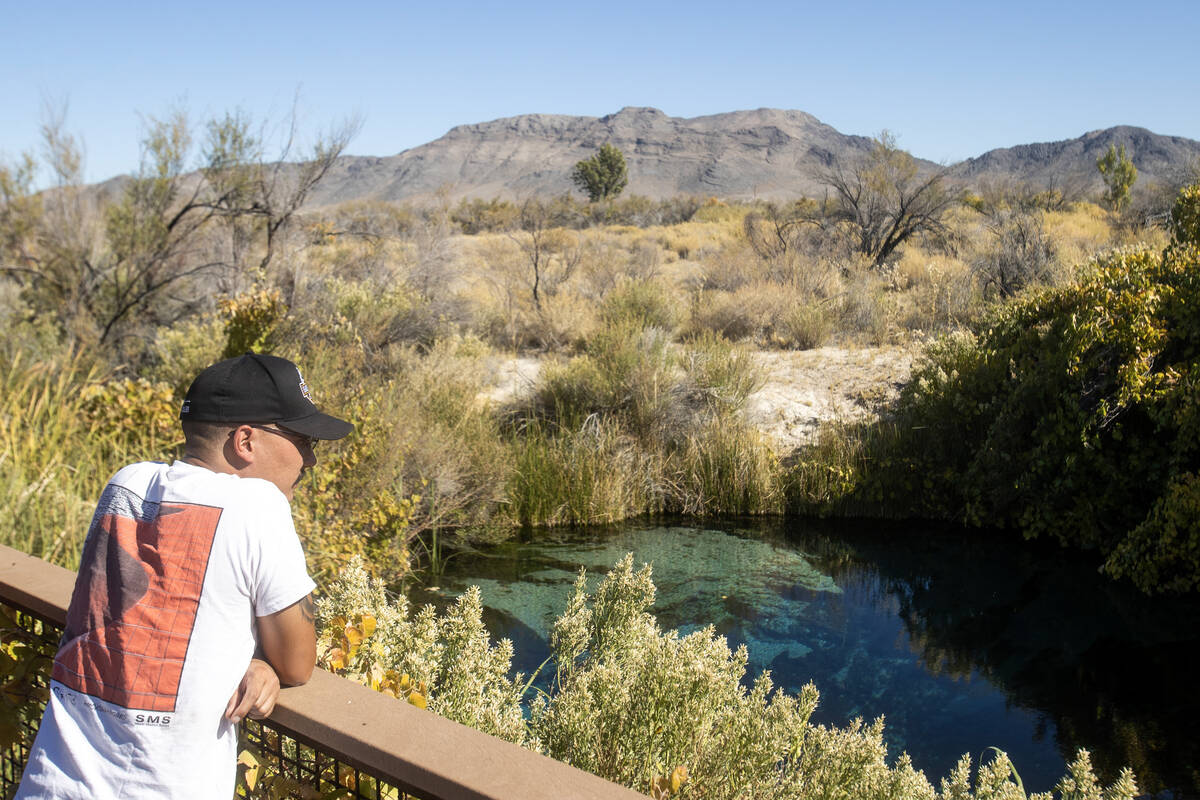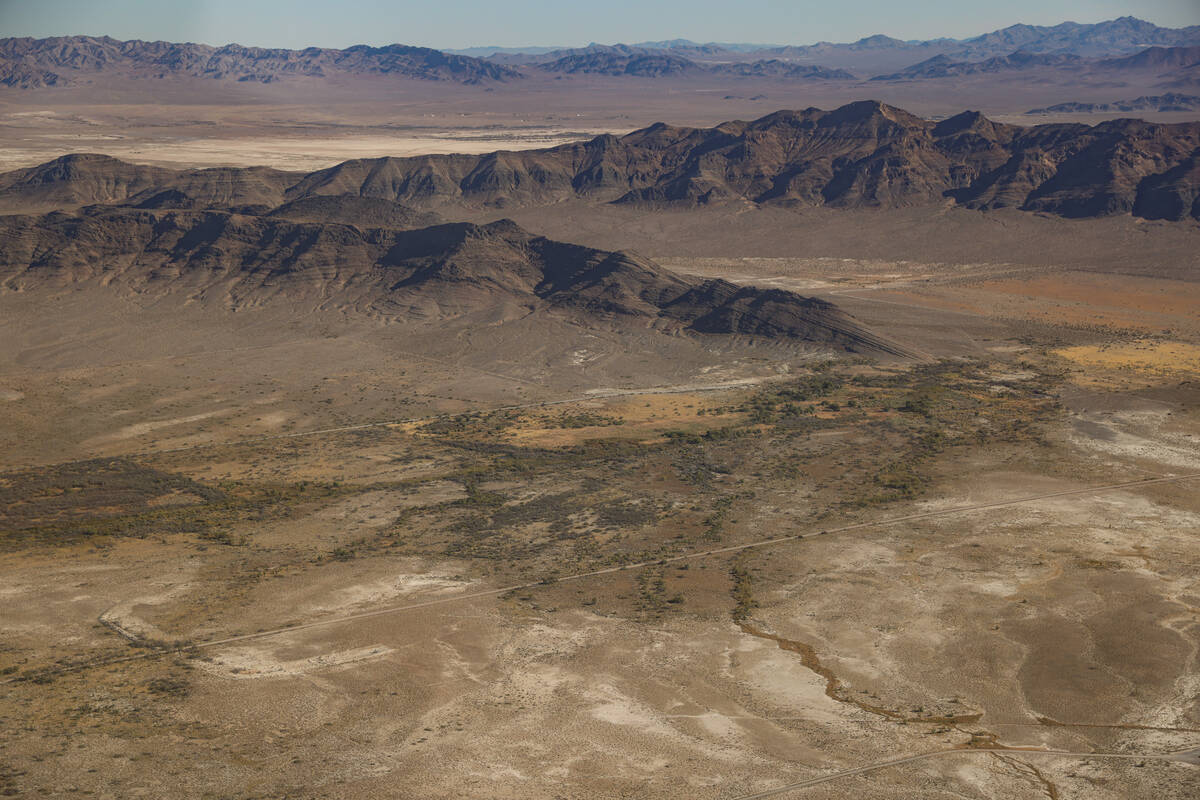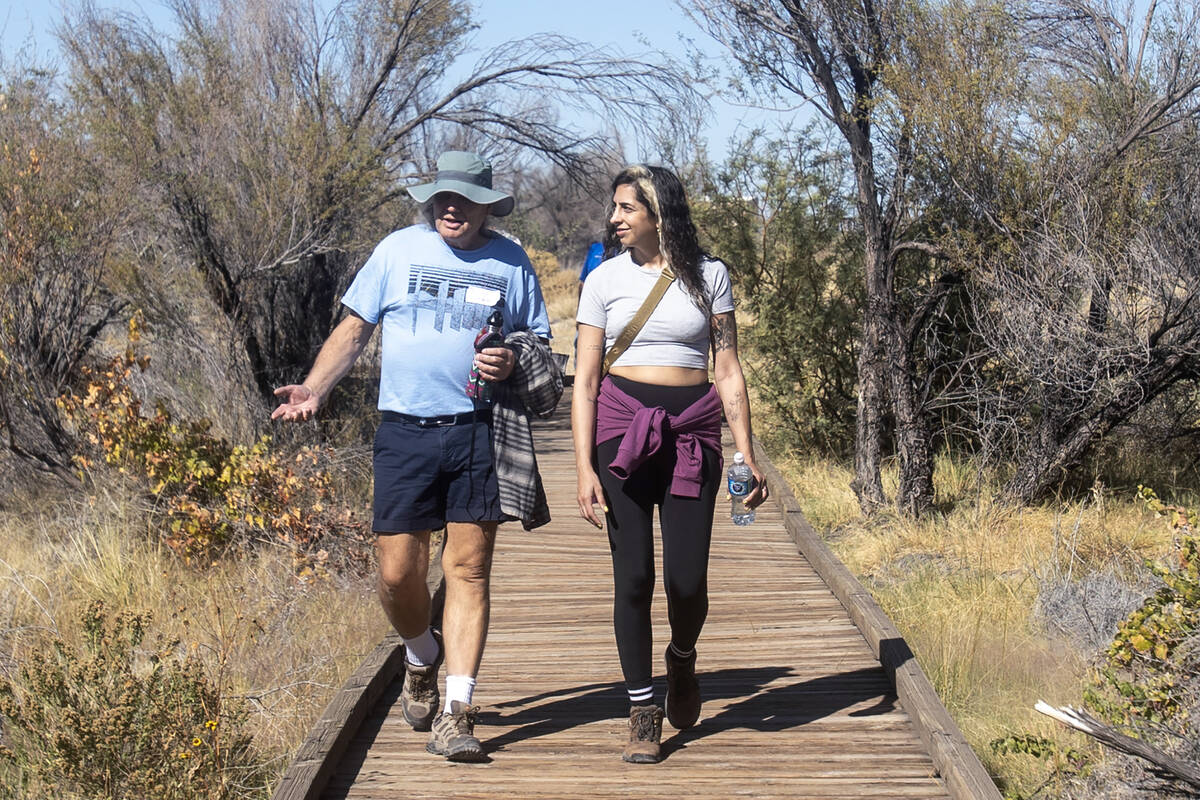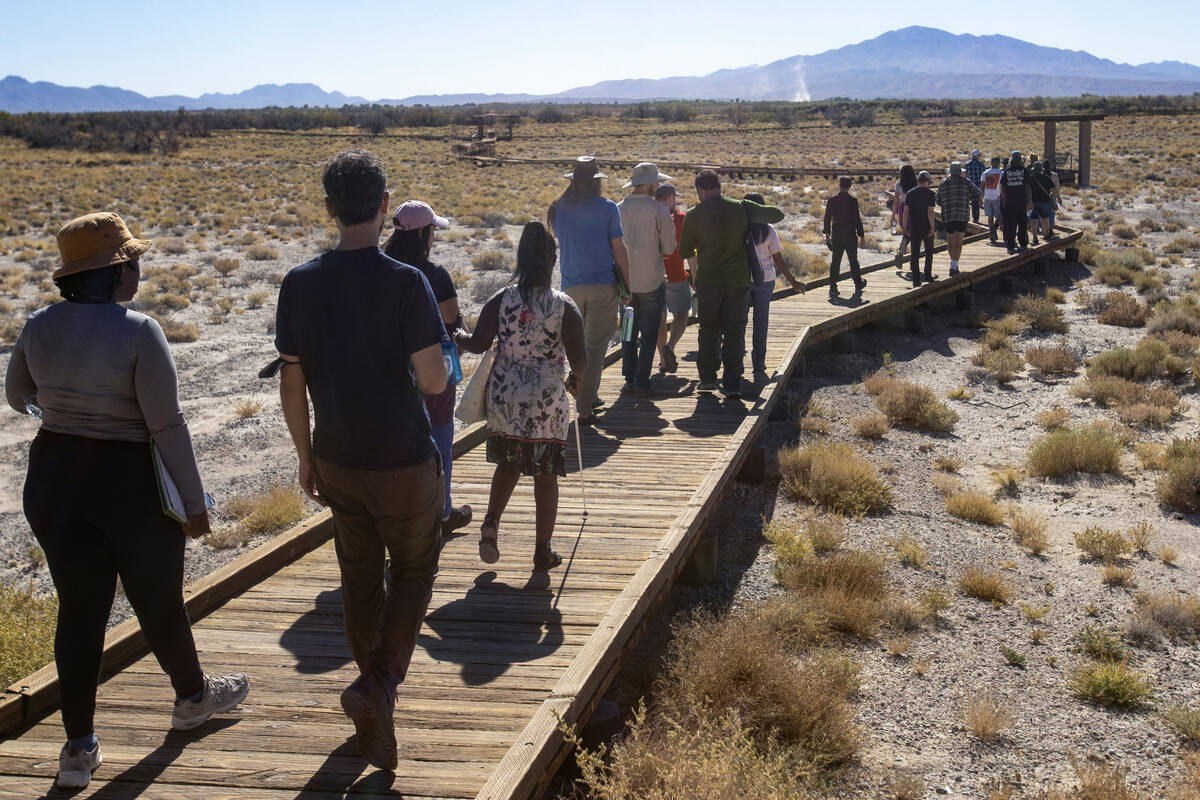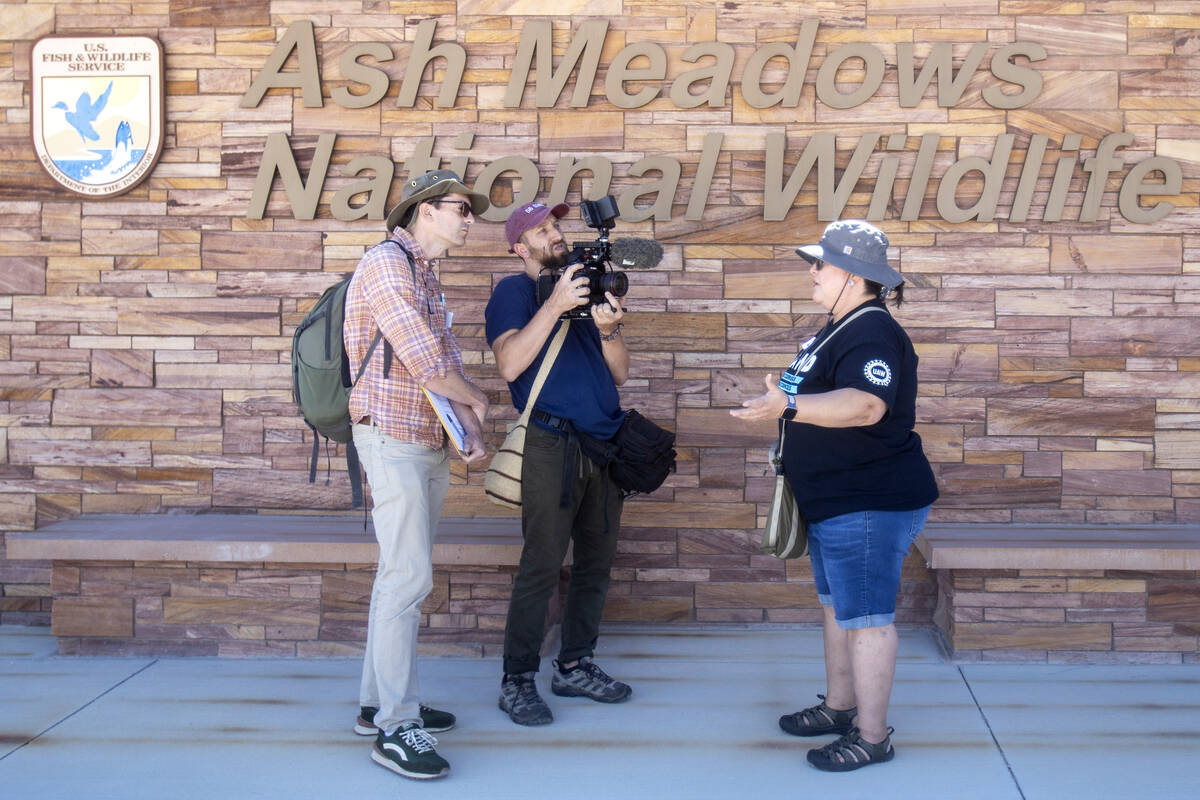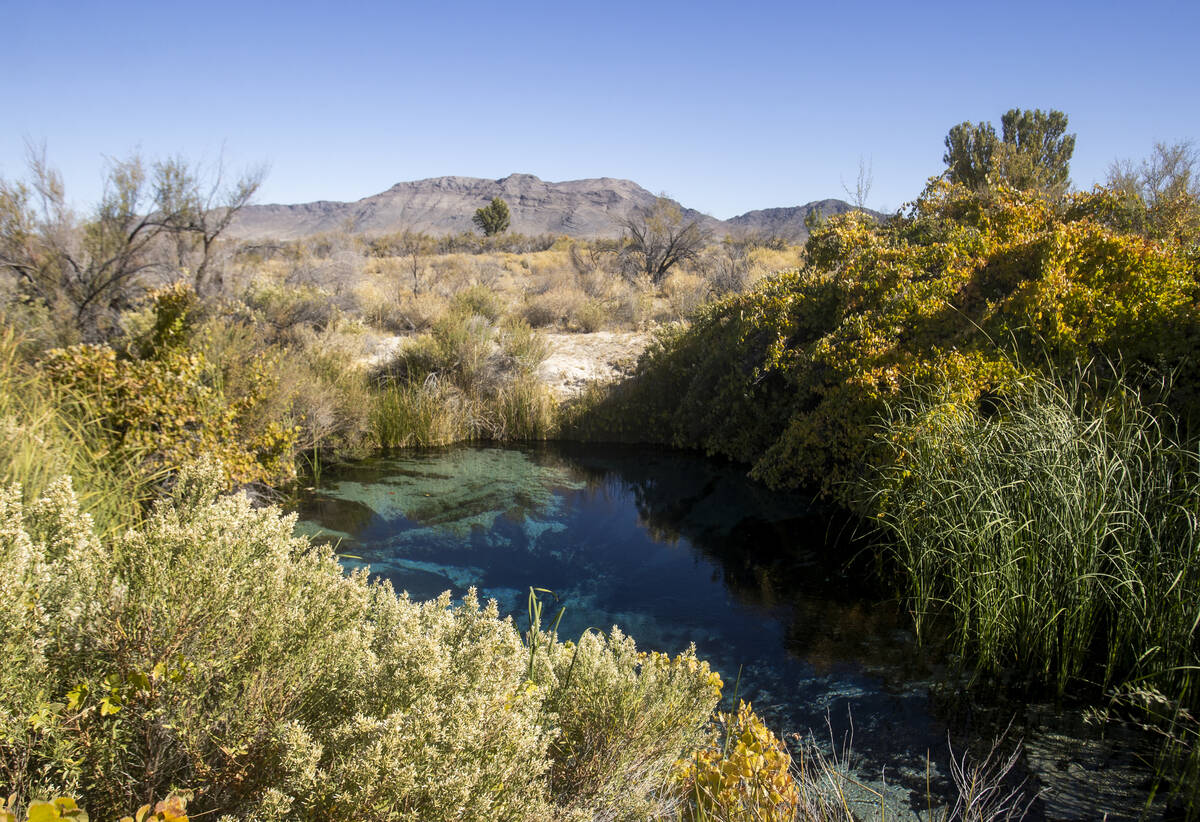Lithium is Nevada’s future. U.S. workers tour state’s hot spots
ASH MEADOWS NATIONAL WILDLIFE REFUGE — When Verónica Gostissa thinks of the lithium boom across the world, she sees injustice.
Back home in the Catamarca province of Argentina, lithium mines don’t take a decade to clear environmental regulations like they do in the United States. The country has been mining lithium since 1997 — a threat to water resources, workers and Indigenous people.
Gostissa, a lawyer, sees these impacts of lithium mining firsthand when she represents El Observatorio Plurinacional de Salares Andinos, a multinational South American advocacy group dedicated to protecting the region’s vast Andean salt flats from large-scale lithium projects.
“It really is a new colonialism,” Gostissa said at Ash Meadows National Wildlife Refuge, a fickle Mojave Desert ecosystem near which exploratory lithium drilling has persisted despite community outcry. “We’re suffering the impact and the consequences, but we’re not the ones driving an electric vehicle. So, we have the world’s worst part of the process.”
This week, Gostissa was the only international voice in a group of about a dozen people who traveled across the Silver State to learn more about how rural communities, tribes and natural resources are affected by green energy development, such as lithium mining.
To bring more affected voices into the conversation, the host organization, Climate & Community Institute, invited auto factory workers, transit advocates and others to Nevada, ground zero for lithium development.
Aside from being a key part of the Biden-Harris administration’s goal of diversifying the country’s energy portfolio, the jobs and growth to rural areas have been touted by politicians across the aisle as a major benefit of these projects.
Starting in Las Vegas, they traveled by bus to places like Ash Meadows in southwestern Nevada, the site of Lithium America’s Thacker Pass mine near the Oregon border and Tonopah, which is close to the only active lithium mine in the country and another proposed lithium-boron mine that the Biden administration approved on Thursday.
Batul Hassan, Climate & Community Institute’s labor director, said part of the mission of the trip was to show people who are affected by the energy transition that large-scale lithium mining may not be necessary with policy changes and an emphasis on public transit, as the group has researched in the past.
“By 2050, if we are ambitious with the way that we rethink our transportation system, we can reduce the amount of mining for minerals like lithium by 92 percent,” Hassan said.
‘White gold’ boom touches diverse industries
Another lithium tourist was Marcie Pedraza, a United Auto Workers union member who works at the Ford Chicago Assembly Plant in Illinois as an electrician.
In June, the union secured a first-of-its-kind agreement for workers in Ohio who produce EV batteries, raising starting wages and ensuring a higher degree of safety.
Pedraza, a member of a union EV committee, said she had no concept of how lithium production could affect communities in Nevada before this trip.
In her plant, only internal-combustion-engine — and gas-powered — cars are manufactured, however, she believes EVs are a promising effort to combat climate change. Learning of environmental consequences was a new part of the nationwide discussion she is just beginning to learn about, though.
“We want to make it more worker-led,” Pedraza said of the nationwide transition to electric cars. “A lot of people are scared of this transition. … Let’s not think about it as, ‘OK, everybody’s going to have to have an electric car in four years.’ It’s not going to happen, and there’s a lot more that needs to be considered.”
Information about environmentalist and tribal opposition to lithium mining was also new for Luke Cianciotto, an Amazon driver based in Chicago and a member of the Teamsters union.
Amazon has committed to electrifying its fleet of cars, putting 100,000 electric delivery vehicles on the road by 2030.
Cianciotto didn’t know anything about the tie to Nevada before embarking on the trip. Now, he feels it’s crucial to include in conversations about lithium batteries.
“These are things that we, as organizers, need to be thinking about,” Cianciotto said. “People bandy around this word ‘supply chain’ but don’t really understand what it means. And what it means is, there’s people at each of those points and nodes.”
Contact Alan Halaly at ahalaly@reviewjournal.com. Follow @AlanHalaly on X.



